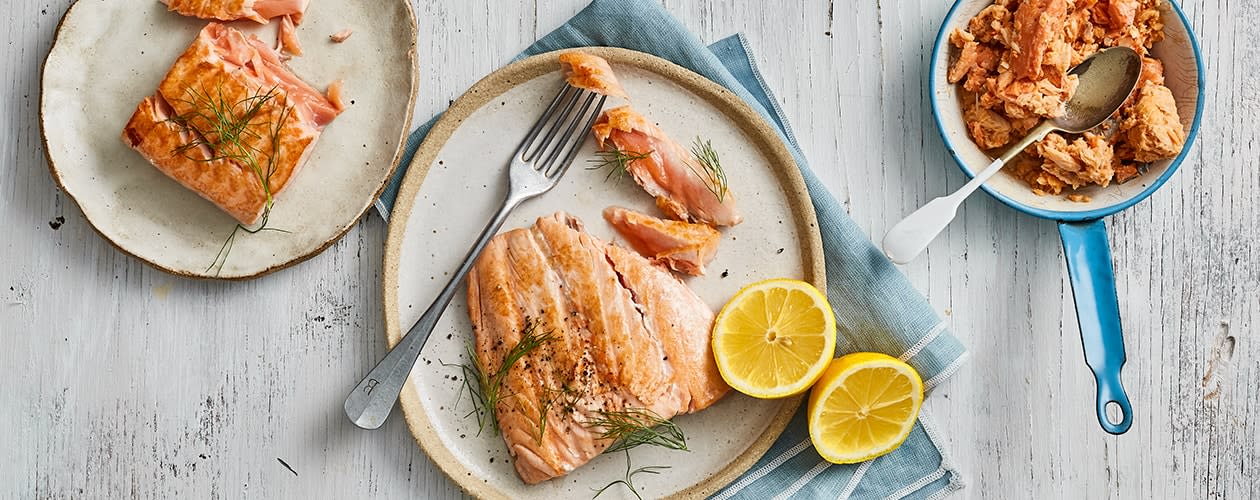Forgotten minerals: Iodine, zinc and magnesium


The minerals your body needs
When we think of minerals, most of us think of iron and calcium, as they’re generally considered the minerals we are most likely to be deficient in. But there are others that are equally important to our health, and because these days people tend to eat more processed foods and fewer natural food sources, many of us may not be getting enough. So what are these ‘forgotten’ minerals?
1. Iodine
Why do I need iodine?
Iodine gets surprisingly little attention considering its vital role in our bodies. It helps regulate the thyroid gland and influences everything from brain development to metabolism. In 2009 the Australian population was classified by the World Health Organisation as mildly iodine deficient and the 2011-12 Australian Health Survey found that 10 per cent of women still had an inadequate iodine intake.
How can increase my iodine intake?
Seawater is the richest source of iodine, so anything that comes from the sea, such as fish, seafood and seaweed, is high in iodine. Iodised salt is one of the other major sources of iodine in the Australian diet and all bread sold in Australia and New Zealand (excluding organic breads) is fortified with iodine. According to the Australian Institute of Health and Welfare, this is now delivering sufficient amounts of iodine to the general population, but pregnant and breastfeeding women are still not getting enough.
How much iodine do I need?
Men and women need approximately 150 micrograms of iodine per day, which for most people can be met through iodised salt and bread, combined with two to three serves per week of fish or seafood. However, those on low-salt diets and those with higher iodine requirements, such as pregnant and breastfeeding women, may need supplements.
2. Zinc
Why do I need zinc?
The ultimate multi-tasker, zinc plays a role in our immune function, protein synthesis, wound healing, taste and smell.
How can increase my zinc intake?
Animal products such as meat, fish, poultry and dairy are the major contributors of zinc in the Western diet but grain foods also contribute significant amounts. The 2011-12 Australian Health Survey found only 37 per cent of men and nine per cent of women had inadequate zinc intakes. Zinc deficiencies are more common in vegetarian and vegan diets, which are becoming increasingly popular. This is not only because meat and animal products are higher in zinc than plant-based foods, but also because compounds known as phytates, present in many vegetarian staples such as wholegrain breads, cereals and legumes, bind to zinc and reduce its absorption in the body.
How much zinc do I need?
Men need approximately 14mg per day - the equivalent of one medium steak and one cup of milk. Women need approximately 8mg per day - the equivalent of one small steak and one cup of milk. This requirement increases to 11mg per day during pregnancy and 12mg during breastfeeding. However, vegans and vegetarians who rely on grains and legumes as dietary staples may need up to 50 per cent more. Symptoms of a zinc deficiency can include decreased immunity, skin conditions such as acne and dermatitis, poor wound healing and an impaired sense of taste and smell. Zinc supplements are generally considered safe, however, excess zinc can be harmful as it can suppress copper and iron absorption, so it’s important to only take the prescribed dose. And don’t take supplements without talking to your doctor first.
3. Magnesium
Why do I need magnesium?
Because of its role in muscle and nerve function, every organ in our body needs magnesium, particularly our heart, muscles and kidneys. There is also evidence that maintaining adequate magnesium levels can help protect against depression. The Australian Health Survey found 41 per cent of men and 35 per cent of women had inadequate magnesium intakes. Eating too many processed grains and too much salt, drinking too much alcohol or coffee and prolonged stress can all lower magnesium levels.
How can increase my magnesium intake?
Magnesium is present in many foods, including nuts, legumes, green vegetables, meat and seafood. Wholegrains have also traditionally been an important source of magnesium, however, processing of grains substantially reduces their magnesium content.
How much magnesium do I need?
The recommended intake of magnesium is about 400mg per day for men and 300mg per day for women, increasing to 350mg per day during pregnancy and breastfeeding. One tablespoon of pumpkin seeds provides about 100mg of magnesium and one cup of cooked spinach is about 160mg. Symptoms of magnesium deficiency include fatigue, insomnia, muscle weakness, high blood pressure and poor memory. The amount of magnesium absorbed varies depending on how much your body needs, so supplements generally cause few side effects. However, excessive doses can cause gastrointestinal discomfort. Should you take supplements? Most healthy people can easily obtain adequate amounts of magnesium from a balanced diet. However, in some cases supplements may be required due to dietary restrictions, pregnancy or illness. If you feel that you may be at risk of deficiency, make sure you speak to your doctor or dietitian.